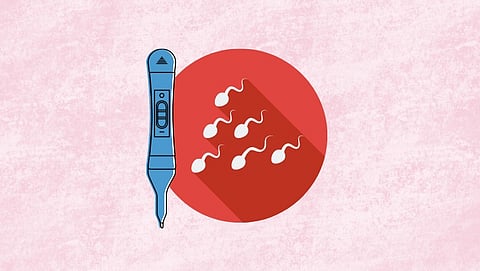

Recently introduced, Non Invasive Chromosomal Screening (NICS) is yet another landmark technology is made available to improve the chances of pregnancy.
Dr. Hrishikesh Pai, leading IVF doctor in Delhi states that NICS technology is an important landmark in the field of IVF. This technology ensures that only euploid embryos are used in the IVF cycle for successful implantation. Further, patients above 35 years need to opt for this screening as they are likely to have more aneuploid embryos.
He is considered to be a pioneer of IVF technology in India. He is one of the best infertility doctors in India considering the pregnancy success rate of 40-50%. Additionally, he is the Founder and Director of the Bloom IVF Group, which has nine centres all over India. In Delhi, Bloom IVF is located at Fortis GK-2. He is also associated with Lilavati Hospital in Mumbai, DY Patil Hospital in Navi Mumbai, and Gurgaon, Mohali, and Chandigarh.
As an expert IVF specialist, Dr. Pai explains that almost 30 to 40 percent of the embryos developed in IVF cycles are aneuploid i.e., chromosomally abnormal. If such embryos are transferred, there are chances of implantation failure, birth defects, and early pregnancy loss. The main advantage of NICS is that it is non-invasive, and there is no need to perform an invasive embryo biopsy.
Currently, Pre-implantation Genetic Testing (PGT), an invasive procedure, is performed to detect the status of the chromosomes of the blastocyst. The PGT procedure involves an embryo biopsy procedure performed by an expert embryologist using the state-of-the-art suitable laser machine and instruments. The biopsy procedure involves inserting a small needle to remove some cells from the blastocyst under the microscope using laser technology. Then, the extracted cells are evaluated for chromosomes. Furthermore, embryo biopsy can cause trauma or damage to the embryo, and hence not advisable.
With the emergence of NICS, an entirely noninvasive procedure where the embryo remains untouched, testing the embryo for chromosome abnormalities has become safer and reliable.
The NICS procedure
Individual embryos are cultured in an incubator in 20 to 30 microlitres of culture medium during the IVF cycle in a petri dish for five days. During the culture period, the cell-free DNA from the blastocyst cells travels to the culture medium.
At this juncture, the 20 microlitres of this culture medium is used to analyze the embryo's chromosomal makeup and the embryo is left undisturbed, which is the Non-Invasive Chromosomal Screening procedure.
Later on, blastocysts with euploid patterns are selected for transfer for a successful pregnancy during the embryo transfer procedure. It has been proven that about 30 to 40 per cent embryos developed during IVF are chromosomally abnormal (aneuploid). There have been instances of implantation failure, early pregnancy losses, and birth defects on account of chromosomal abnormalities in IVF cycles.
Thus, Dr. Pai recognises noninvasive chromosome screening (NICS) as a pathbreaking technology that enables the selection of chromosomal-balanced embryos without performing invasive embryo biopsy that helps in successful IVF cycles and pregnancies therafter.
About Dr. Hrishikesh Pai
Dr. Hrishikesh Pai has been one of the best IVF doctor in India since 1991. Over his 35 years of practice, he has treated numerous cases of Obstetrics, Gynecology & Infertility. He comes with a success rate of 40-50% in IVF and related cases. He has received many awards for his contribution to the field of infertility treatment and Gynaecology.
This is a sponsored article for Dr. Hrishikesh Pai.
